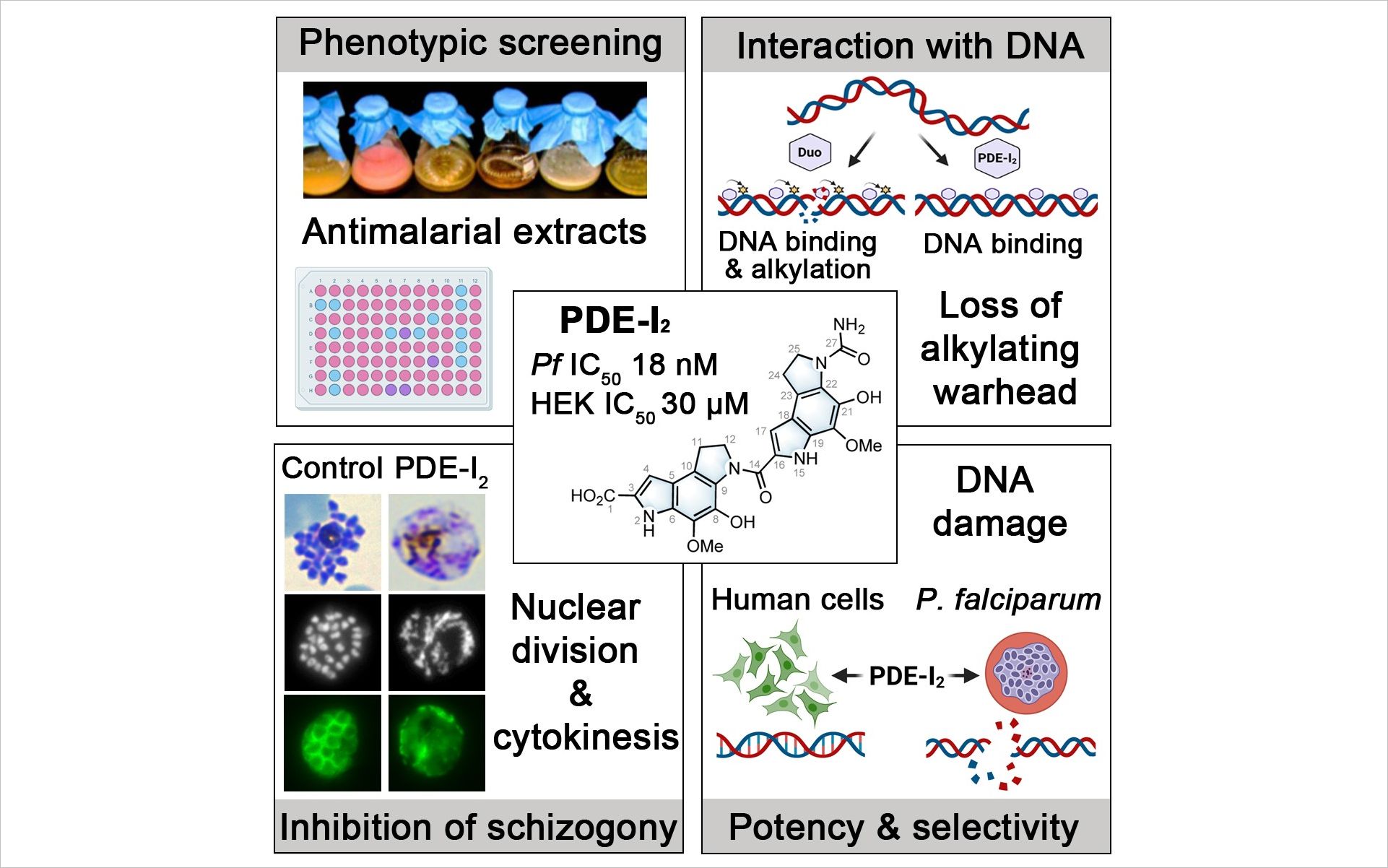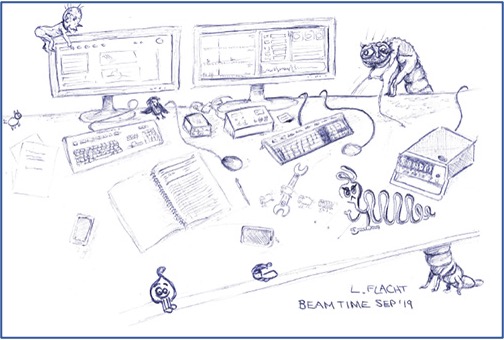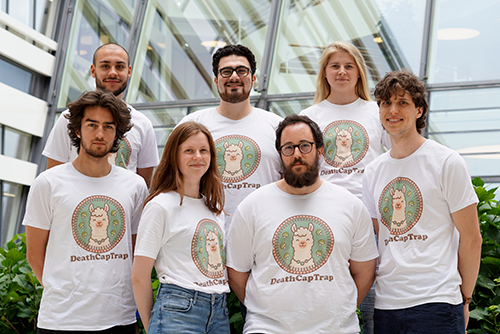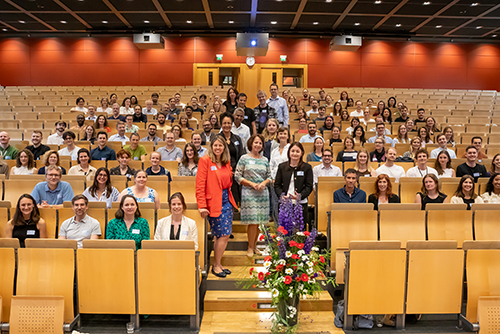Promising new antimalarial compound discovered
Promising new antimalarial compound discovered in Hamburg - McMaster collaboration
Scientist from CSSB’s Gilberger group (BNITM and UHH) and collaborators from the Michael G. DeGroote Institute for Infectious Disease Research at McMaster University in Hamilton, Canada have discovered a promising new antimalarial compound. The discovery, published in Cell Chemical Biology, opens the door to the development of new drugs targeting malaria, one of the deadliest infectious diseases on the planet.
Co-led by Tim Gilberger and Gerry Wright (McMaster University) the researcher teams performed a screen of soil bacteria extracts for antimalarials and identified an extremely potent inhibitor of malaria development.

This breakthrough comes at a pivotal time in global malaria management as drug resistance in malaria is becoming increasingly problematic and climate change is pushing malaria-carrying mosquitoes to new places, broadening the disease’s spread. In fact, World Health Organization estimates that malaria was responsible for more than 400,000 deaths and 229 million infections in 2019 alone.
The family of compounds investigated by the researchers — duocarmycins — have been known to kill malaria and cancer cells for some time; however, they are extremely toxic to humans. As such, using them as treatment comes with considerable collateral damage, which has resulted in many failed clinical trials. These compounds considered to be ‘anti-life,’ as they kill just about everything in their path.
However, PDE-I2, the new compound molecule discovered by the Hamburg- McMaster team, appears to come with all of the potent malaria-killing properties of previously known duocarmycins — just without the adverse effects. “We’ve shined a new light here,” said Wright “We’re looking at a part of chemistry that nobody has ever looked at before.”
This discovery is a decade in the making, as the project began when Gilberger and Wright worked together at McMaster between 2010 and 2014. Since then, the Wright laboratory has been sending thousands of sub-fractions derived from specific soil bacteria from Hamilton to Hamburg, where Gilberger and his team would test and validate their anti-malarial activity. It was years of trial-and-error before the researchers finally fractionated the right molecule — a process the scientists liken to finding a needle in a haystack.
“This novel compound represents a useful scaffold for anti-malaria therapy,” said Gilberger, who added that he is excited to explore the compounds efficiency in systemic infections and to pinpoint its mode of action.
The main funding for the research study came from the Canadian Institutes for Health Research. Additional funding was received from the Jürgen Manchot Foundation, the Joachim Herz Foundation and PIER/DESY.
Source:
Alder A. et al. (2021) A non-reactive natural product precursor of the duocarmycin family has potent and selective antimalarial activity. Cell Chemical Bio. https://doi.org/10.1016/j.chembiol.2021.10.005
Original News Story:
https://brighterworld.mcmaster.ca/articles/promising-new-antimalarial-compound-discovered-in-mcmaster-hamburg-collaboration/



